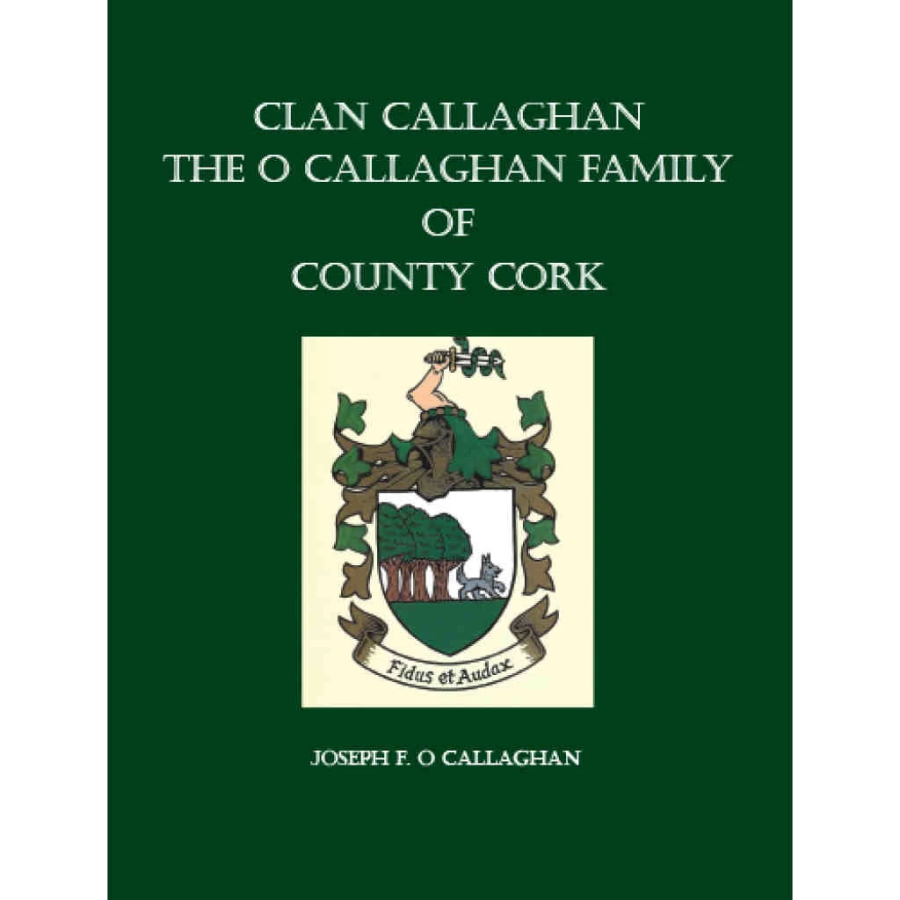Clan Callaghan: The O'Callaghan Family of County Cork, Revised Edition
Couldn't load pickup availability
This impeccably researched and stylishly written family history traces the O Callaghans (Callaghan, Callahan) from their mythic beginnings in Ireland to their present-day progeny in County Cork, Spain, the United States, Australia, and other places. Prepared by Joseph F. O Callaghan, distinguished professor emeritus of medieval history at Fordham University, Clan Callaghan is the standard against which all future studies of this family will be measured.
The O Callaghan family is an ancient one, tracing its descent in Ireland from the tenth-century king, Cellachán of Cashel, celebrated in the annals and in the mists of legend. From their original homeland around Cashel, the O Callaghans migrated into County Cork, where they became-and remain today-one of the largest family groups.
The core of Professor O Callaghan's narrative traces the Clan Callaghan's fortunes from the extension of English control throughout Ireland during the course of the 16th and 17th centuries through the great Irish diaspora of the 19th and 20th centuries. For example, in 1594 the chieftain, Conor of the Rock, surrendered the clan lands to the Crown, receiving them back to be held thereafter under English law as a personal estate for himself and his immediate family.
Following the treaty of Limerick in 1691 many O Callaghan soldiers went abroad to serve in the armies of France, Spain, and Germany and to set down new roots. The failure of the potato crop and the Great Famine in the 1840s decimated Ireland's population and stimulated emigration. Colonel John O Callaghan of Bodyke in Clare gained notoriety for hostile relations with his tenants, while the O Callaghans of Dromcummer in Cork exemplified the many who were evicted for failure to meet their rental obligation.
As the twentieth century opened, the failure to gain Home Rule dealt a severe blow to the parliamentary tradition and prompted the Easter rebellion in 1916. In the struggle for independence Michael O Callaghan, former Lord Mayor of Limerick, was assassinated by the Black and Tans, and Donal O Callaghan, Lord Mayor of Cork, represented the family. By this time, of course, the great migration of the late nineteenth century to England, America, Canada, Australia, and elsewhere was on. Seeking to escape wretchedness at home and to find better lives for themselves and their children, thousands of O Callaghans (most identified as Callaghans) took part in this diaspora. As the author documents, they or their descendants achieved a measure of prosperity unknown at home and some achieved great distinction as historians, theologians, biblical scholars, military heroes, and in nearly every other form of human endeavor.
Adding to the volume's historical value, Professor O Callaghan has provided sixteen genealogical charts that outline numerous O Callaghan lines, including the O Callaghans of Rathmore, Clare, Tipperary, Muskerry, Banteer, Dromore, Glynn, Lismehane, Spain, and Philadelphia, the author's place of origin. Persons with ancestors possessing the following surnames are likely to have O Callaghan connections: Barry, Butler, Callaghan, Callahan, Condon, Fitzgerald, Gillman, Gould, Grehan, Lacy, Lismore, Lombard, MacAuliffe, MacCallaghan, MacCarthy, MacSweeney, O Brien, O Connell, O Keeffe, O Mullane, O Neill, O Sullivan, Roche, and White. Researchers will also benefit from the book's many illustrations, vast bibliography, endnotes, and complete name index.
Joseph F. O Callaghan
(2005), 2020, paper, 302 pp.
ISBN: 9780806359168
102-8575
